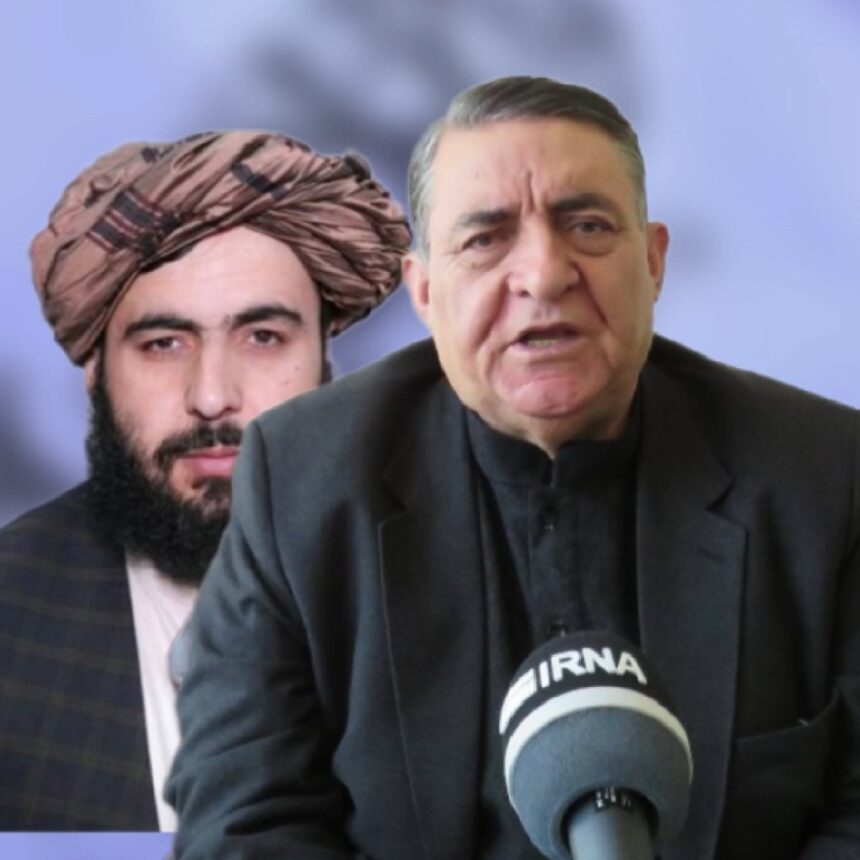RASC News Agency: In a recent statement, Taliban Deputy Spokesman Hamdullah Fitrat publicly condemned the events of the 7th of Sawr while praising the 8th of Sawr as a day of victory. His comments have sparked a strong reaction from Ahmad Saeedi, a renowned political analyst, who issued a scathing critique denouncing the commemoration of both dates. In his analysis, Saeedi stresses that the 7th and 8th of Sawr represent symbols of “suffering and tragedy” for the people of Afghanistan. He asserts that the 7th of Sawr (the Khalq coup against President Daoud Khan in 1978) and the 8th of Sawr (the Mujahideen’s seizure of power in 1992) were both historically disastrous events. For the victims and the survivors, he argues, the devastating consequences of both events were indistinguishable.
Saeedi writes:
“The 7th of Sawr 1357 and the 8th of Sawr 1371 are two interconnected, yet equally tragic milestones in Afghanistan’s history. From the standpoint of the victims and the wounded, there is no difference in the suffering inflicted by either.” While acknowledging that some regard the Mujahideen’s victory on the 8th of Sawr with pride, Saeedi personally rejects the idea that it represented a legitimate “Islamic Jihad.” He highlights the atrocities and violence that followed the Mujahideen’s rise to power, emphasizing: “Celebrating the 8th of Sawr is an insult to the thousands of martyrs, the disabled, and the missing across Kabul and the provinces.”
Although Fitrat portrayed the 8th of Sawr as a victory, Saeedi portrays it instead as a symbol of violence and national tragedy. He points to the devastation of Kabul, the mass displacement of civilians, and widespread killings, arguing that the 8th of Sawr represents one of Afghanistan’s most profound defeats.
He further warns:
“Celebrating the 7th and 8th of Sawr dishonors the hundreds of thousands of widows and orphaned children who, as a result of these catastrophic events, today endure poverty, malnutrition, and disease.” Saeedi insists that both events ushered in eras of profound suffering and destruction. He argues that commemorating these dates not only disrespects the memory of the victims but also perpetuates the same destructive political legacies that historically served foreign interests at the expense of Afghanistan’s sovereignty and well-being.
Concluding his article, Saeedi proposes that instead of glorifying these historical traumas, Afghanistan should embrace reflection, accountability, and repentance. He writes: “The highest and most noble form of courage would be for those responsible for these ominous chapters to publicly confess their accumulated crimes and apologize to the oppressed people of Afghanistan.” Drawing upon Afghanistan’s painful and turbulent history, Saeedi contends that commemorating the 7th and 8th of Sawr ignores the massive suffering they caused and risks repeating the errors of the past. He calls for a national reckoning based on reconciliation and historical honesty, arguing that only by confronting past wrongs can Afghanistan hope to move towards peace.
In his view, celebrating either event amounts to a betrayal of the Afghanistani people’s long-suffering aspirations for dignity, justice, and a better future.






